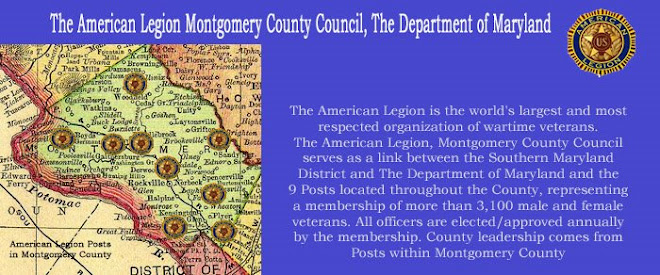WASHINGTON (Sept. 10, 2009 ) - The newly elected leader of The American Legion has spelled out the veterans service organization’s seven leading priorities for Congress.
National Commander Clarence E. Hill, just two weeks into his one-year term, testified before a joint session of the U.S. House and Senate Veterans Affairs Committees this morning, succinctly outlining the Legion’s continuing concern over funding of the Department of Veterans Affairs , VA’s huge caseload backlog and the fate of VA medicine in light of impending changes in the nation’s health care system.
Hill submitted 40 pages of written testimony to committee members, but also offered a few minutes of oral testimony in a packed Cannon House Office Building caucus room. Among the hundreds witnessing the commander’s testimony were Legion leaders from across the nation who had made an annual pilgrimage to Washington to visit their congressional representatives as well as a contingent of wounded warriors from nearby Walter Reed Army Medical Center whose presence inspired two standing ovations.
Hill summarized his brief remarks by declaring seven “priority items” for congressional consideration. These included what he called “timely, predictable and sufficient” appropriations “to support the Department of Veterans Affairs’ delivery of quality health care to the nation’s veterans.” The commander also reiterated the Legion’s argument that VA health care be kept autonomous and not rolled into any national health care plan.
Hill also urged passage of twin House and Senate bills that would enable Medicare reimbursement to the VA for medical treatment of eligible veterans, plus improved screening of and treatment for traumatic brain injury and post traumatic stress disorder.
The Legion commander also urged changes in the newly enacted Post 9/11 G.I. Bill that would expand financial aid to include veterans who wish to pursue vocational and trade school educational opportunities rather than just those presented in colleges and universities. He also encouraged improved regulation of the Local Veterans’ Employment Representative (LVER) and Disabled Veterans’ Outreach (DVOP) programs at the state level to help bolster employment opportunities for veterans.
An oft-repeated topic of discussion during the commander’s testimony was the huge backlog of unprocessed and partially processed VA disability claims. Some sources say the number of claims in the backlog now approach one-million. The Legion leader said that improved training and retention of case workers, plus the institution of measures to, as he put it, “get it right the first time,” thus avoiding repeated and extensive processing of claims, will help free the logjam. Hill and the Legion drew praise for offering solutions to the vexing problem, rather than simply express alarm about it.
Praise was also offered by committee members to each other for their largely bipartisan efforts to address the needs of the nation’s military veterans. The most passionate statement in this regard was made by Bernie Sanders, the Independent senator from Vermont. “I voted against the war in Iraq,” he proclaimed, “but no matter whether you favor a war or oppose it, it is wrong to blame those who put on the uniform.” His comment elicited loud applause. Testimony is presented annually to lawmakers by The American Legion’s national commander shortly after Congress reconvenes in its fall session.
With a current membership of 2.5-million wartime veterans, The American Legion was founded in 1919 on the four pillars of a strong national security, veterans affairs, Americanism, and youth programs. Legionnaires work for the betterment of their communities through more than 14,000 posts across the nation.
Friday, September 11, 2009
Subscribe to:
Post Comments (Atom)




No comments:
Post a Comment